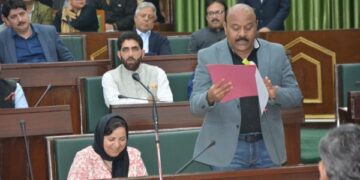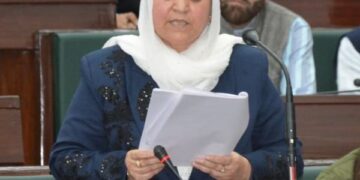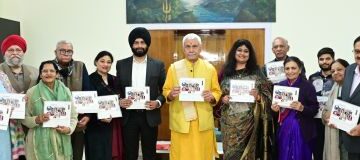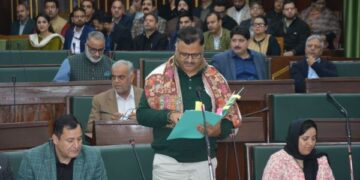BUDGAM: District Legal Services Authority (DLSA) Budgam, under the aegis of the Jammu & Kashmir Legal Services Authority (JKLSA), organised an awareness programme on drug abuse and solid waste management (SWM) in collaboration with TLSC Chadoora at Sogam Chadoora.
The programme was conducted under the supervision of O.P. Bhagat, Chairman, DLSA Budgam, and the active guidance of Nusrat Ali Hakak, Secretary, DLSA Budgam.
The awareness programme was aimed at sensitising the public about two critical issues, viz., drug abuse and solid waste management.
The objective of solid waste management is to protect public health and the environment by ensuring scientific and systematic waste disposal, while promoting reduction, reuse, and recycling to conserve resources and minimise pollution.
Similarly, the drug abuse awareness component sought to educate people about the dangers of substance abuse, its social consequences, harmful effects of different drugs, and the legal framework governing them.
Deputy LADC Budgam, Nazir Ahmad Wagay, deputed by DLSA Budgam as the resource person delivered an insightful presentation, raising awareness among participants.
Wagay highlighted the legal protections available to minors, harmful consequences of drug abuse, and its alarming impact on society, particularly on the younger generation. He emphasized the urgent need for vigilance to prevent children and youth from falling prey to this menace.
He also spoke extensively on solid waste management, underlining its direct impact on public health and the environment. He highlighted the importance of proper waste segregation, disposal, and recycling practices, stressing that reduction, reuse, and recycling are key to sustainable waste management.
He further elaborated on the legal framework and regulations related to waste management that must be followed by all stakeholders.
Wagay urged everyone to adopt responsible practices, including segregation of waste at the source, minimizing waste generation, maximizing resource recovery through recycling and composting, and ensuring safe disposal of residual waste. The ultimate goal, he said, is to safeguard natural resources, improve public health, and enhance the quality of life for both present and future generations.
The programme witnessed active and enthusiastic participation from marginalized communities.




